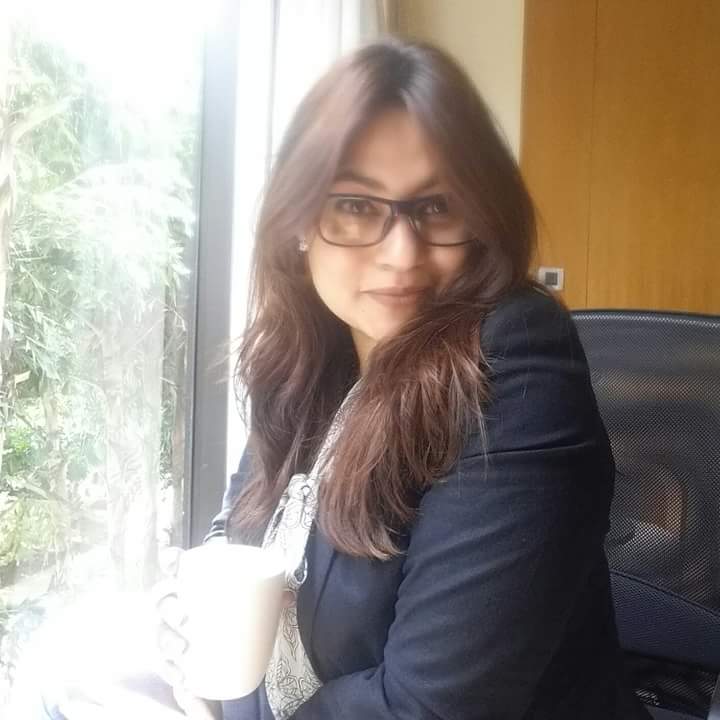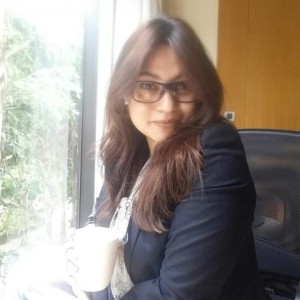Sonal Mattoo graduated from National Law School of India University (NLSIU) in 1996. Since then, she has been practicing as a Criminal Litigator. She founded Helping Hands, in 1996, which helps implement policies against Sexual Harassment/ gender sensitization and other forms of harassment and discrimination at the workplace, besides carrying out training and investigation on complaints filed with the organization.
She is also a founder and principal consultant of Mantran Consultants, a firm specializing in CSR activities, Counselling, Diversity policies, and workshops. She supports various clients as an independent Ombudsperson, handling employee complaints.
Sonal is a Non-Executive Independent Director of Ashiana Housing Limited (a listed company) where she is the Chairperson of Investors Grievance Committee and a member of the Audit Committee and Remuneration Committee of the directors. Sonal is also a Non-Executive Independent Director of Vatika Marketing Limited and V-Mart.
Sonal’s initiatives in these areas and notably on sexual harassment workshops have been covered twice by ‘Femina’, ‘Around Town’ and ‘again twice’ by Cosmopolitan and Readers Digest ‘Joy’. She has also been invited by E-TV to develop and present 12 TV episodes on ‘Legal and General Issues Specific to Women’ for their program, `Nari’.
A keen reader, Sonal has written articles on Sexual Harassment for Human Capital (India’s premier journal on HR), newspapers, seminars, and contributed a chapter on `Sexual Harassment’ for `Empowerment of Women in India, 2003,’ published by Law Publishers, Allahabad.
In this interview she talks about:
- Choosing law as a career and her experience at NLSIU, Bangalore
- Her experience as a founder director of “Helping Hands”, Its motive and the activities it indulges in
- Sexual Harassment at a workplace
- Choosing to become an Ombudsman and her programme “Nari”
What prompted you to think of law as a career? If not law, what other options would you have considered for your career?
I always wanted to be part of a justice process. I didn’t have a plan B, so had to make my plan A work.
Describe your experience at National Law School of India University as an undergraduate student.
I was initially intimidated with the level of intellectual competency every student and faculty member possessed. The curriculum was designed to make you think, work hard, understand rather than memorize. An awesome 5 years, difficult to describe, but left a mark on everyone, NLSIU contributed to my personal and professional growth more than any other experience. There was outstanding, dedicated faculty and friends for life were the added bonus.
How did you become a founder director at “Helping Hands”? What were the challenges that you faced?
As a litigating lawyer, I found most people completely unaware of their basic legal rights and options. Moreover, 20 years ago the parallel Redressal mechanism was not as refined as it is now. We saw a gap in these two areas and set up Helping Hands to primarily support and educate people about their legal rights and provide a platform for counseling/conciliation/settlement of disputes.
Helping Hands is a self-funded NGO. Funding was a challenge, so I decided to dedicate a portion of my earnings towards funding the NGO.
 What are the activities Helping Hands indulges in?
What are the activities Helping Hands indulges in?
At a corporate level:
- Redressal, inquiry into complaints of workplace harassment,
- Awareness sessions, training of ICC members and employees,
- Support organizations as an ombudsman.
At a non-corporate level:
- Counseling
- Education and awareness on legal rights and options
- Resolving and negotiating family disputes.
- Supporting senior citizens with preparing wills etc.
What were the initial missions of the organization and what kept you motivated?
The initial years were focused on supporting women and children who were victims of domestic violence, sexual abuse. The missions also included creating education and awareness around sexual harassment at the workplace.
What do you think about the current situation of sexual harassment at a workplace? How do you think the situation can be improved?
I’m fortunate to support organizations that have a zero tolerance policy and go beyond the letter and spirit of the law to ensure they are fair and provide a safe and conducive work environment to all employees.
However, from the many independent clients, I advise the lack of sensitivity towards victims, corporate failure to take these matters seriously, protecting star performers and senior management, retaliation towards the Complainant are grim realities.
Mandatory education and awareness are the only way out.
If I want to become a founder director of an NGO how should I go about it?
Find like-minded people to join your cause. Passion and commitment are the only requirements. Leave the rest, like registration, etc. to your lawyer and CA!
How did you become an ombudsman? Is an ombudsman same as a mediator?
As a member of the ICC, my email address and contact details was often circulated to the employees. Several would write requesting for help to resolve workplace issues, not necessarily related to sexual harassment. They were more comfortable speaking with a neutral third party. Hence, I started to support various clients as an independent Ombudsperson. While the primary effort is to resolve the concerns raised and mediate, often concerns raised call for an inquiry and stringent action basis on findings.
Why should the leader(s) of an organization listen to an Ombudsman?
The Office of the Ombudsperson is independent and works in the best interest of the parties involved. A third person’s perspective is always valuable and brings another dimension into the conversation.
Describe your experience as an independent director of Ashiana Housing Ltd, Vatika Marketing Ltd, and V-Mart.
Being the only woman on both boards, it’s driven home the point that both sexes must be represented in decision-making processes. The learning has been great for me. My colleagues on the board are incredibly intelligent and competent individuals, we bring our unique experiences on board and learning and listening to them encourages you to strive harder. I have finally learned to read a balance sheet!
What were the issues you covered in the programme “Nari”?
The programme covered legal issues pertaining to women, dowry, maintenance, legal rights as a victim, etc.
How exactly would you define social entrepreneurship?
The intention to help and bring about a positive change in the lives of people if given a formal structure and direction can have a wider reach with greater impact. The ROI is making a difference in people’s life.
Do you think having family members or mentors with a legal background help in this profession?
I’m sure it does, but it’s not a requirement. Anyone with passion, drive the ability to work hard and committed to the cause, irrespective of their support structures will be a success in the legal profession.
What would be your advice to our readers?
Do what you love and enjoy, the long hours and hard work won’t tire or bore you.





















